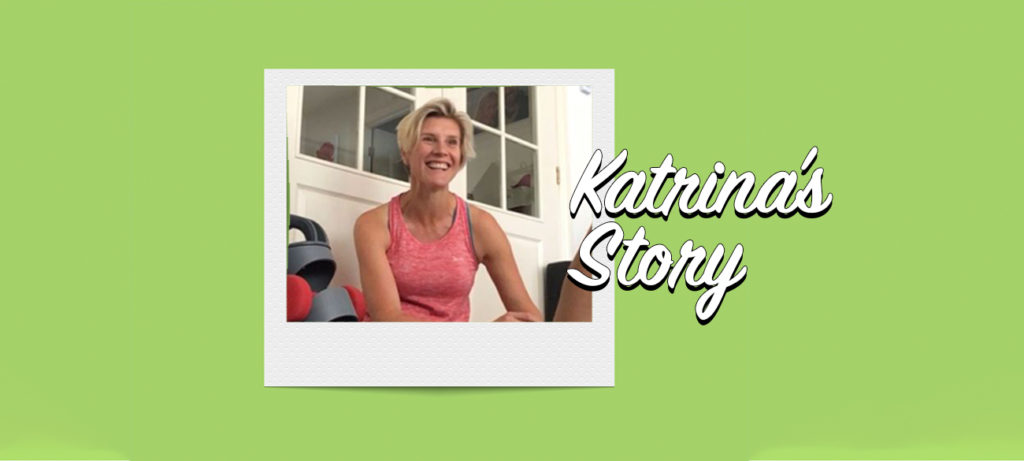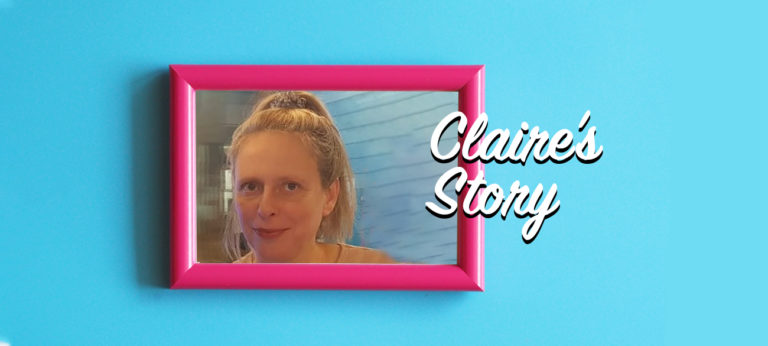Uncertainty messes with your head. Twice, in previous jobs, redundancy sent my emotions swinging back and forth like a pendulum. There were good days and bad. One moment you’re excited about the future, the next the future doesn’t go much further than the fridge. Uncertainty and anxiety are debilitating. Among my pendulum swings, and vague plans to start a company building tree houses (…which thankfully never got off the ground), there were stifling moments of inaction. I knew the solution to this was momentum. But momentum relies on finding motivation – and according to personal trainer Katrina Keeling, motivation is your “flakiest friend.”
One day you feel yourself to be a caped crusader, a reliable self-starter, able to fling aside the slippers and stride purposely towards ambition and adventure, ready to write the CV, organise upskilling and touch the face of the future. Other days it’s all going to hell in a handcart. On those difficult days, finding the motivation to get going is a challenging process. Sometimes it’s hard to tinker with your head. But Katrina believes that by developing healthy habits physically, things can become a little more manageable mentally.
“I ended up re-training in my mid-40s”
Some personal trainers are practitioners of tough love, dedicated to fitness regimes and pain. Katrina isn’t one of those. Before a switch in lifestyles a couple of years ago, she spent 20-odd years in a corporate career in London, working in various roles from communications to sustainability. A move into contracting led to prolonged bouts away from her two children. This, combined with gaps between contracts, led to a period of self-questioning about what she might turn to next.
“I enjoyed working out and staying fit”, Katrina says, speaking from her home in Dorset, “there was a personal trainer at my gym who left, and people started asking me ‘do you do personal training?’ It got me thinking, actually why not, why don’t I consider it? So I ended up re-training in my mid-40s.” Katrina admits to initial nerves, she felt that people imagined fitness trainers to be perfect physical specimens, “it felt a bit like I was saying, in my mid-40s, oh I’m going to be a model or something, because being a personal trainer, people kind of automatically seem to think they have a right to comment on your appearance and your perceived fitness and you know, how you look, so it did feel a little bit like I was sticking my head above the parapet, there was a little bit of imposter syndrome.”
Katrina came to believe that the fitness industry needs more diverse people, in terms of age, style, approach, back-story, body size, body shape. She feels that when clients see a trainer who looks a bit more like them it’s less daunting, the perception of ‘normality’ encourages them to look after themselves. Setting up in the south-west, Katrina now works between a ladies’ gym and private clients. “It’s a bit of a journey I’ve gone on in the last couple of years,” she says, with a laugh as if she can’t quite believe it herself.
“Olympic” expectations are unrealistic
To Katrina, one of the most important things about fitness is the value in doing something little and often. She’s not a big fan of over-ambitious targets, “it’s not realistic to expect yourself to become an Olympic athlete”, she says, “but it’s important to do what you can”. The way to restoring a little momentum, she says, is to design a routine for yourself and “get your health and fitness prioritised within that. It doesn’t have to be an all-or-nothing extreme, it’s really simple stuff like getting out for a walk every day and getting outside”. Katrina is a big fan of walking, which as an exercise she says is really underrated, “if you do nothing else, get out for a walk every day, it’s great for fitness, great for mental health”.
During lockdown the government allowed people to go outside for a little daily exercise, which Katrina believes was valuable advice. “If everybody did that”, she says, “it would make such a huge difference to our physical health and mental wellbeing”. She suggests that “the best exercise is whatever you enjoy, because if you enjoy it you’re going to keep doing it”. Doing a little of this as often as you can will go a long way to improving fitness she says, “being sedimentary is our absolute enemy”.
Sleep is a part of our lives we have less control over, particularly during times of anxiety. Katrina works a lot with carers and new mums, whose sleep is frequently interrupted. Simply encouraging them to sleep more is not practical or helpful, and so Katrina suggests looking at what they can control, for example when they go to bed. “People don’t think anything of setting an alarm to get up in the morning. My suggestion is that you also set an alarm to go to bed in the evening, because consistency in the time you go to sleep and the time you wake up is really beneficial for promoting good quality sleep. So set a timer about half an hour before you want to go to bed.”
Keep your favourite foods
Healthy attitudes towards nutrition are important too, and again here Katrina takes a pragmatic approach. She believes the imagined idea of a ‘correct’ diet includes restrictions, in other words “food we need to stop eating. I always advise against that. Your first thought should be what else can I add to my diet?” She encourages variety, “if you want to eat well, you need to eat wide.” This leads to thoughts about what to add to a diet, rather than cutting out foods perceived as unhealthy, “if you want to adhere to a good diet, you need to have plenty of slack room to enjoy the foods that you like. Cutting stuff out is the classic thing that leads to yo-yo-eating, bingeing and over-eating.” Katrina’s advice is to keep your favourite things, just think about what other nutritious foods you can add.
Adding all of these thoughts to a checklist helps create routine, and routine tackles difficulties with motivation, imposing a little order when everything else is up in the air. “Small changes make a big difference”, Katrina says. Restoring a little physical action may help to rejuvenate mental wellbeing. Motivation may be your flakiest friend. But routines can reliably give you focus and direction – and help to soften the pendulum swings between the good days and the bad.






